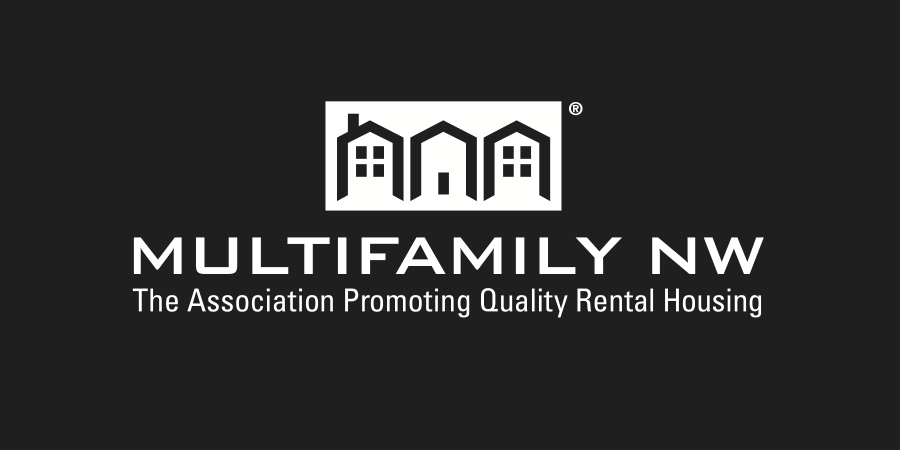View 9 Key Steps for Successfully Turning Your Home Into a Rental Property

9 Steps to Successfully Turn Your Home Into a Rental Property
Selling a home can sometimes take longer than expected, and market conditions don’t always work in a seller’s favor. If you're struggling to sell your property and feeling frustrated, turning your home into a rental property can be an excellent alternative. Not only can it generate income, but it also gives you more flexibility to sell when the market improves. However, becoming a landlord is a serious commitment, and managing a rental property comes with its own set of challenges. Before diving in, follow these nine key steps to ensure a smooth transition and maximize your rental income.
1. Evaluate the Local Rental Market
The first step in turning your home into a rental property is understanding the local rental market. Research comparable rental properties in your area to get a feel for the going rates. This will help you determine if renting out your home is a financially viable option. Consider factors like neighborhood desirability, proximity to schools, transportation options, and local amenities that can make your property more attractive to potential tenants.
Additionally, assess the vacancy rate in your area. If the vacancy rate is low, you’re more likely to find tenants quickly. However, if the rental market is saturated, you may struggle to rent your home for a price that covers your mortgage and expenses. Local real estate websites, market reports, and community resources can provide valuable insights.
Consider Seasonal Fluctuations
Keep in mind that rental demand can fluctuate throughout the year. For example, if you live in a college town, demand may peak at the beginning of the academic year. Understanding these trends can help you time your rental listing effectively.
Property management companies often have access to rental market data and can provide valuable insights into the best rental price for your property. Their expertise can guide you in adjusting rental rates based on changing market conditions, ensuring you remain competitive.
2. Understand Your Financial Obligations
Before you make the leap, it's essential to fully understand the financial implications of renting out your home. Start by calculating your expected rental income versus the costs of maintaining the property. These expenses may include:
- Mortgage Payments: Know your current mortgage payment and whether rental income will cover it.
- Property Taxes: Research local tax rates to understand what you will owe as a landlord.
- Insurance: Factor in landlord insurance costs, which can differ from homeowner's insurance.
- Maintenance and Repairs: Allocate funds for ongoing maintenance and any unforeseen repairs.
- Utilities: Determine whether you will cover any utilities and how that will impact your profitability.
- Property Management Fees: If you choose to hire a property management company, understand their fee structure.
You’ll also want to ensure that the rental income will cover your mortgage and provide some profit. If not, renting may not be the best option. Additionally, consider setting aside a reserve fund for unexpected expenses, which can help you manage financial surprises.
Speak with a tax professional to understand how rental income and expenses will impact your taxes. Renting out your home can create tax benefits, such as deducting maintenance costs, depreciation, and property management fees, but it also comes with additional tax responsibilities. Understanding your tax obligations early will help you avoid surprises at tax time.
3. Secure the Right Insurance
Homeowner’s insurance is not the same as landlord's insurance. If you’re planning to turn your home into a rental property, it’s crucial to update your policy. Landlord insurance typically provides additional coverage for:
- Property Damage: Coverage for damages caused by tenants or unforeseen events.
- Liability Coverage: Protection in case a tenant or visitor is injured on the property.
- Loss of Rental Income: Compensation if your property becomes uninhabitable due to a covered event, such as fire or flood.
While it may be tempting to skip this step to save money, skipping proper insurance could leave you vulnerable to expensive repairs or legal battles down the line. Consulting with an insurance professional who specializes in landlord policies can help you choose the right coverage tailored to your needs.
4. Prepare Your Home for Renters
Transitioning from a home seller to a landlord means shifting your mindset from selling to renting. You’ll need to prepare your property to attract quality tenants, just as you would when staging a home for sale. Some tasks to consider:
- Deep Cleaning: Ensure the entire house is spotless. This includes cleaning carpets, windows, and appliances. A clean home is much more appealing to renters.
- Repairs and Maintenance: Take care of any outstanding repairs, such as leaky faucets, broken fixtures, or faulty appliances. Fixing these issues now will prevent future headaches and help you avoid tenant complaints.
- Safety and Security: Install or check smoke and carbon monoxide detectors, change locks, and consider adding security features like outdoor lighting or security cameras.
- Curb Appeal: Make the exterior of your property inviting by trimming the lawn, planting flowers, and ensuring the entrance is well-maintained. First impressions matter, and a welcoming exterior can attract more tenants.
While you may not want to go overboard on costly upgrades, making minor improvements can help justify a higher rental price. This can range from applying a fresh coat of paint to replacing outdated appliances.
Staging for Renters
Consider staging the property to showcase its potential. Highlight areas like the living room, kitchen, and outdoor spaces that could appeal to prospective tenants. This effort can make a significant difference in how quickly you find reliable renters.
5. Understand Local Landlord-Tenant Laws
Renting out your home means entering into a legal agreement with tenants. Every state, city, and even neighborhood can have different landlord-tenant laws, so it’s important to familiarize yourself with them before renting. Some key legal considerations include:
- Security Deposit Limits: Know how much you can charge and the rules regarding its return.
- Eviction Procedures: Understand the legal process required for evicting a tenant if necessary.
- Notice Periods: Learn about the notice requirements for lease termination or rent increases.
- Maintenance Responsibilities: Familiarize yourself with what maintenance tasks you’re responsible for and what tenants must handle.
- Tenant Privacy Laws: Know the legal rights of tenants regarding privacy and notice for property access.
Failing to comply with local laws can result in hefty fines or legal disputes with tenants. Hiring a property management company can help you navigate these regulations. Experienced property managers are well-versed in landlord-tenant laws and can ensure you remain compliant, minimizing your legal risks.
6. Determine the Right Rent Price
Setting the right rent price is crucial to attracting tenants while still covering your financial obligations. Pricing your home too high can result in long vacancy periods, while pricing it too low means you’ll leave money on the table. As mentioned earlier, researching comparable properties in your area is key. Consider factors like:
- Property Size and Condition: Larger or newly renovated properties can command higher rents.
- Number of Bedrooms and Bathrooms: More bedrooms typically translate to higher rental prices.
- Included Amenities: Features such as a washer/dryer, air conditioning, parking, or a backyard can enhance rental appeal.
- Outdoor Space: If your property has a yard, patio, or balcony, highlight these features.
Additionally, keep an eye on rental trends and seasonal fluctuations, as discussed earlier. If possible, consider conducting a rental market analysis or seeking help from a real estate professional.
If you’re unsure about pricing, many property management companies offer rental assessment services to help you set a competitive and profitable rate. Their expertise can also guide you in making adjustments to your pricing strategy based on tenant feedback and market changes.
7. Advertise and Screen Tenants
Once your property is ready, it’s time to attract tenants. Take high-quality photos of your home and write a detailed listing highlighting its best features. You can post your rental on various platforms, such as:
- Zillow
- Craigslist
- Rental Listing Websites: Consider dedicated rental listing websites that cater to your area.
The key to finding great tenants is thorough screening. You’ll want to check their credit history, verify employment, and contact previous landlords to ensure they have a good rental track record. A background check can also reveal any criminal history that might pose a risk to your property.
Standard Application Process
Establish a clear application process to streamline tenant screening. This can include an online application form, required documentation (like pay stubs or references), and an application fee to cover background checks.
Managing the tenant screening process can be time-consuming and overwhelming, especially if you’re new to being a landlord. A property management company can handle advertising, tenant screening, and lease agreements, ensuring you find reliable renters quickly. Their experience can help you avoid potential pitfalls and choose tenants who are likely to fulfill their lease obligations.
8. Create a Solid Lease Agreement
A well-drafted lease agreement is essential for protecting yourself legally and setting expectations for your tenants. The lease should clearly outline:
- Rent Amount and Due Date: Specify how much the rent is and when it’s due.
- Security Deposit Details: Include the amount and terms for its return.
- Maintenance Responsibilities: Clarify who is responsible for what maintenance tasks.
- Pet Policies: Clearly state your policy regarding pets, including any fees or restrictions.
- Lease Term: Define the length of the lease (e.g., 12 months, month-to-month).
- Consequences of Violating Terms: Include consequences for late payments, lease violations, or illegal activities.
Consider working with a lawyer to draft a lease agreement tailored to your specific needs and local laws. An attorney can help ensure your lease covers all necessary provisions and complies with state regulations, reducing your risk of legal issues.
Additionally, consider outlining any other important information, such as rules about smoking or noise levels, to maintain a positive rental experience. A well-structured lease agreement not only protects you but also helps establish clear expectations with your tenants, fostering a more harmonious landlord-tenant relationship.
9. Consider Hiring a Property Management Company
Managing a rental property can be time-consuming and challenging, particularly if you have other commitments or don’t live nearby. If the thought of being a hands-on landlord feels overwhelming, consider hiring a property management company. Here are some advantages of professional property management:
- Tenant Screening: Property managers have systems in place to effectively screen potential tenants, minimizing the risk of problematic renters.
- Maintenance Coordination: They can handle maintenance requests and emergencies promptly, ensuring your property remains in good condition.
- Rent Collection: Property managers handle rent collection and can enforce late payment penalties, helping you maintain consistent cash flow.
- Legal Compliance: They ensure that you comply with all local landlord-tenant laws, reducing your risk of legal issues.
- Market Expertise: Property management companies have access to local market data and can provide guidance on setting rental rates.
Although hiring a property management company comes with additional costs, it can save you time and stress. It also allows you to focus on other priorities while ensuring your rental property is managed professionally. Take the time to research and interview potential property management companies, as finding the right one can make a significant difference in your rental experience.
Conclusion
Turning your home into a rental property can be a rewarding and profitable venture if approached thoughtfully.
By following these nine key steps, you can successfully navigate the complexities of becoming a landlord while maximizing your rental income. Whether you decide to manage the property yourself or hire a professional management company, taking the time to plan and prepare will set you up for success in your new role as a landlord.










